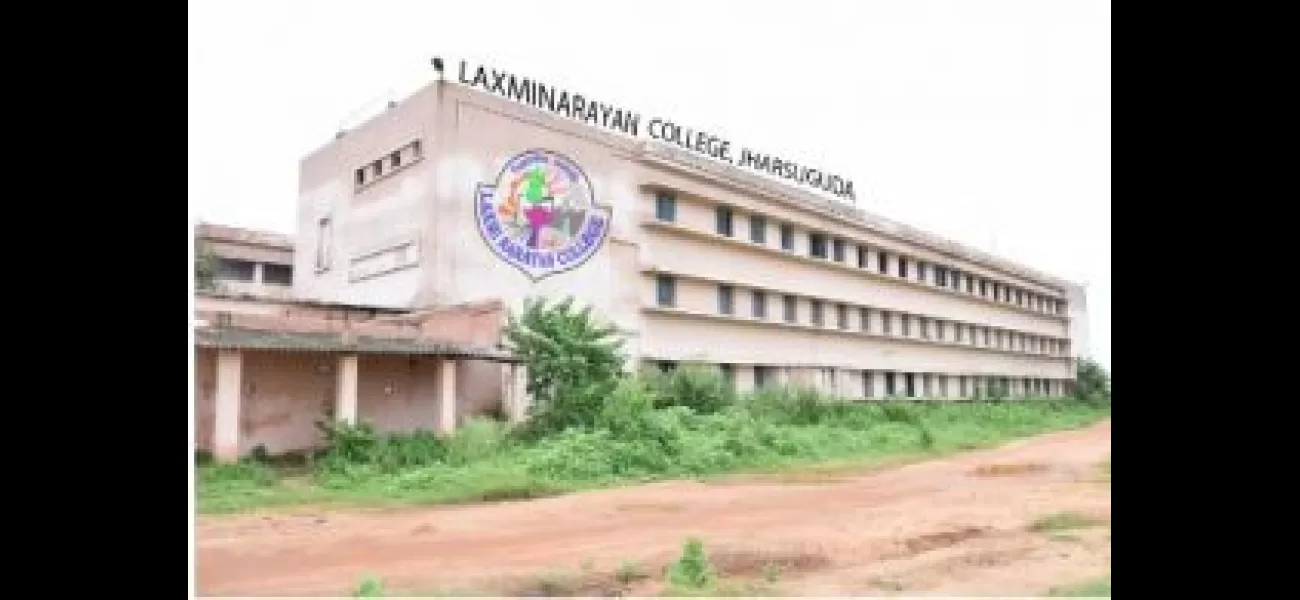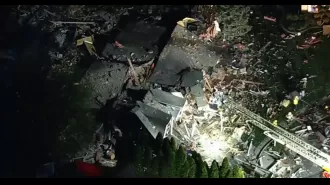Jharsuguda is facing chaos in its higher education system.
In Jharsuguda, the lack of government colleges has hindered the spread of higher education, despite the district's industrial success.
June 13th 2024.

The district of Jharsuguda, known for its industrial wealth, is facing a major setback when it comes to higher education. The state government's lack of interest in establishing government colleges in the district has caused a great hindrance in the spread of higher education. Despite the district's need for robust institutions, not a single government college has been set up yet. Moreover, none of the existing colleges have been granted government status. As a result, students from marginalized communities and lower middle-class households are unable to access higher education opportunities, while those from well-off families can afford to send their children to colleges in other cities like Sambalpur and Bhubaneswar.
Sources reveal that Jharsuguda is the oldest railway junction in the state and contributes significantly to the state and central exchequers. With an abundance of mineral resources, the district has no shortage of funds, as crores of rupees are lying unused with the District Mineral Foundation. In addition, many experienced politicians have represented the district in the state government over the years. Being a major business hub, Jharsuguda attracts entrepreneurs from all over the country and even from outside. The establishment of the state's second airport five years back has also improved its connectivity. Despite all of this, the government's negligence towards the district reflects their apathetic attitude.
According to reports, Jharsuguda was carved out as a separate district from undivided Sambalpur in 1994, during the tenure of the late Biju Patnaik as the Chief Minister of Odisha. At that time, the former CM had promised to establish a government college in the district, but that promise remains unfulfilled to this day. The district currently has three main colleges — Lakshmi Narayan College, Women's College, and Brajarajnagar College, which offer courses for Plus II and Plus III. Despite being established a long time ago, there was no college in the district that offered post-graduation courses until recently. It was only after a student protest that PG courses were finally introduced in five subjects at Lakshmi Narayan College, in the presence of former Chief Minister Rajendra Narayan Singhdeo, the then Jharsuguda MLA Murali Prasad Mishra, former Chief Minister Hemananda Biswal, and thousands of people, back in 1969.
However, even after all these years, the college is yet to receive government recognition. Similarly, Women's College, which was established in 1982, is still waiting for government recognition. The Brajarajnagar College, located about 10 km from the district headquarters, was established in 1978 and is now fully-aided, but it too lacks government status. The district's only government engineering school, established in 1955, is yet to be upgraded into a government engineering college. Out of the four blocks in the district, there are Plus II and Plus III colleges in four of them. Bhatalaida College, Basumati Science College in Samasingha, Jharianal College in Talamunda, Saheltikra College, Saligram Sakunia College in Talapatia, Indira Gandhi Women's College in Brajarajnagar, and Dwarika Prasad Agarwal College in Bagmara only offer Plus II courses and do not have adequate infrastructure. There are only two vocational colleges in the district — Kolabira Panchayat Samiti College and Kirmira Sobhan Memorial College. The remaining five blocks in the district have not seen any significant development in terms of college education.
Sources reveal that Jharsuguda is the oldest railway junction in the state and contributes significantly to the state and central exchequers. With an abundance of mineral resources, the district has no shortage of funds, as crores of rupees are lying unused with the District Mineral Foundation. In addition, many experienced politicians have represented the district in the state government over the years. Being a major business hub, Jharsuguda attracts entrepreneurs from all over the country and even from outside. The establishment of the state's second airport five years back has also improved its connectivity. Despite all of this, the government's negligence towards the district reflects their apathetic attitude.
According to reports, Jharsuguda was carved out as a separate district from undivided Sambalpur in 1994, during the tenure of the late Biju Patnaik as the Chief Minister of Odisha. At that time, the former CM had promised to establish a government college in the district, but that promise remains unfulfilled to this day. The district currently has three main colleges — Lakshmi Narayan College, Women's College, and Brajarajnagar College, which offer courses for Plus II and Plus III. Despite being established a long time ago, there was no college in the district that offered post-graduation courses until recently. It was only after a student protest that PG courses were finally introduced in five subjects at Lakshmi Narayan College, in the presence of former Chief Minister Rajendra Narayan Singhdeo, the then Jharsuguda MLA Murali Prasad Mishra, former Chief Minister Hemananda Biswal, and thousands of people, back in 1969.
However, even after all these years, the college is yet to receive government recognition. Similarly, Women's College, which was established in 1982, is still waiting for government recognition. The Brajarajnagar College, located about 10 km from the district headquarters, was established in 1978 and is now fully-aided, but it too lacks government status. The district's only government engineering school, established in 1955, is yet to be upgraded into a government engineering college. Out of the four blocks in the district, there are Plus II and Plus III colleges in four of them. Bhatalaida College, Basumati Science College in Samasingha, Jharianal College in Talamunda, Saheltikra College, Saligram Sakunia College in Talapatia, Indira Gandhi Women's College in Brajarajnagar, and Dwarika Prasad Agarwal College in Bagmara only offer Plus II courses and do not have adequate infrastructure. There are only two vocational colleges in the district — Kolabira Panchayat Samiti College and Kirmira Sobhan Memorial College. The remaining five blocks in the district have not seen any significant development in terms of college education.
[This article has been trending online recently and has been generated with AI. Your feed is customized.]
[Generative AI is experimental.]
0
0
Submit Comment





